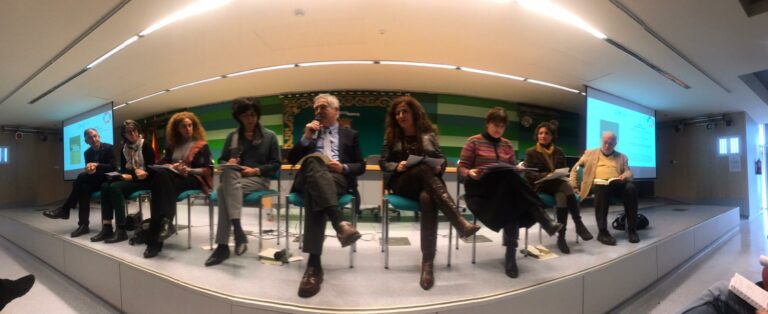Presentation of the book "2030 Agenda. Keys to social transformation"
On Wednesday, December 11, the Autonomous University of Madrid presented the book 2030 Agenda. Keys to sustainable transformation in the Assembly Hall of the Faculty of Teacher Training and Education.
Rafael Garesse Alarcón, Rector of the UAM, Margarita Alfaro Amieiro, Vice Rector of Institutional Relations, Social Responsibility and Culture of the UAM; María Jesús Such Devesa, Vice-Rector for Social Responsibility and University Extension Policies of the UAH and Director of the Cooperation Working Group of the Crue-Internationalization Sector Commission; and some authors of the book, among which was Carlos Giménez, director of the DEMOSPAZ Institute.

The signing of the document Transforming our world: the 2030 Agenda for Sustainable Development by 193 countries on September 25, 2015, is one of the most transcendental global agreements of recent decades. The Agenda has 17 Sustainable Development Goals (SDGs) and 169 goals to be met by 2030. The great relevance of this set of aspirations and priorities is the main reason why the Autonomous University of Madrid collects a set of contributions to the SDGs of specialists of high academic recognition in this book, among which is Javier Murillo, director of the Chair, as the author of the chapter “Education for social justice as an approach to achieving the objectives of sustainable development”.
Some participants in the presentation of the book, such as the rector of the University, Rafael Garesse Alarcón, echoed the momentum that is experienced globally by the action against climate change and climate justice, emphasizing that “it is the moment of the action”. In addition to the presentation of the different thematic blocks of the book, the efforts of the university for collaborative and network work were emphasized, with citizens as the central focus.
This book is the beginning of an ambitious project to bring the SDGs closer to the entire university community, as well as to study and express the role that the academic community should acquire in achieving these objectives. To this, Margarita Alfaro Amieiro pointed out that “the presentation of this book is a starting point that will not go back”
You can find the book here.

